4 Winning Strategies in SEO for B2B Companies
Sep 18, 2024
Written by Casey Bjorkdahl

Casey Bjorkdahl is one of the pioneering thought leaders in the SEO community. In 2010, Casey co-founded Vazoola after working for a Digital Marketing Agency for five years in New York City. Vazoola is now one of the fastest growing and most widely recognized SEO marketing firms in the country.

What’s the deal with SEO for B2B? Does it take the same strategies for success as a B2C counterpart? You might be surprised at the difference (and similarities).
After all, we’re all operating in a competitive B2B landscape. Maintaining a strong online presence is crucial for success.
It’s no shocker that search engine optimization plays an important role helping businesses reach their target audiences, generate leads, and ultimately, drive revenue.
As algorithms evolve and the digital world grows in complexity, refreshing your SEO strategy is not just advisable—it's absolutely necessary.
In our experience, businesses must vigilantly keep up with SEO trends and SEO strategies for B2B business so their content remains visible and relevant.
Whether you're a marketing manager, a content creator, or a business owner, understanding and implementing effective B2B SEO can significantly impact your success.
Key Takeaways:
-
• Recognize the unique challenges and opportunities in B2B SEO.
-
• Implement actionable strategies to optimize your SEO efforts.
-
• Measure and refine your SEO strategy based on key performance metrics.
Table of Contents:
What is B2B SEO?
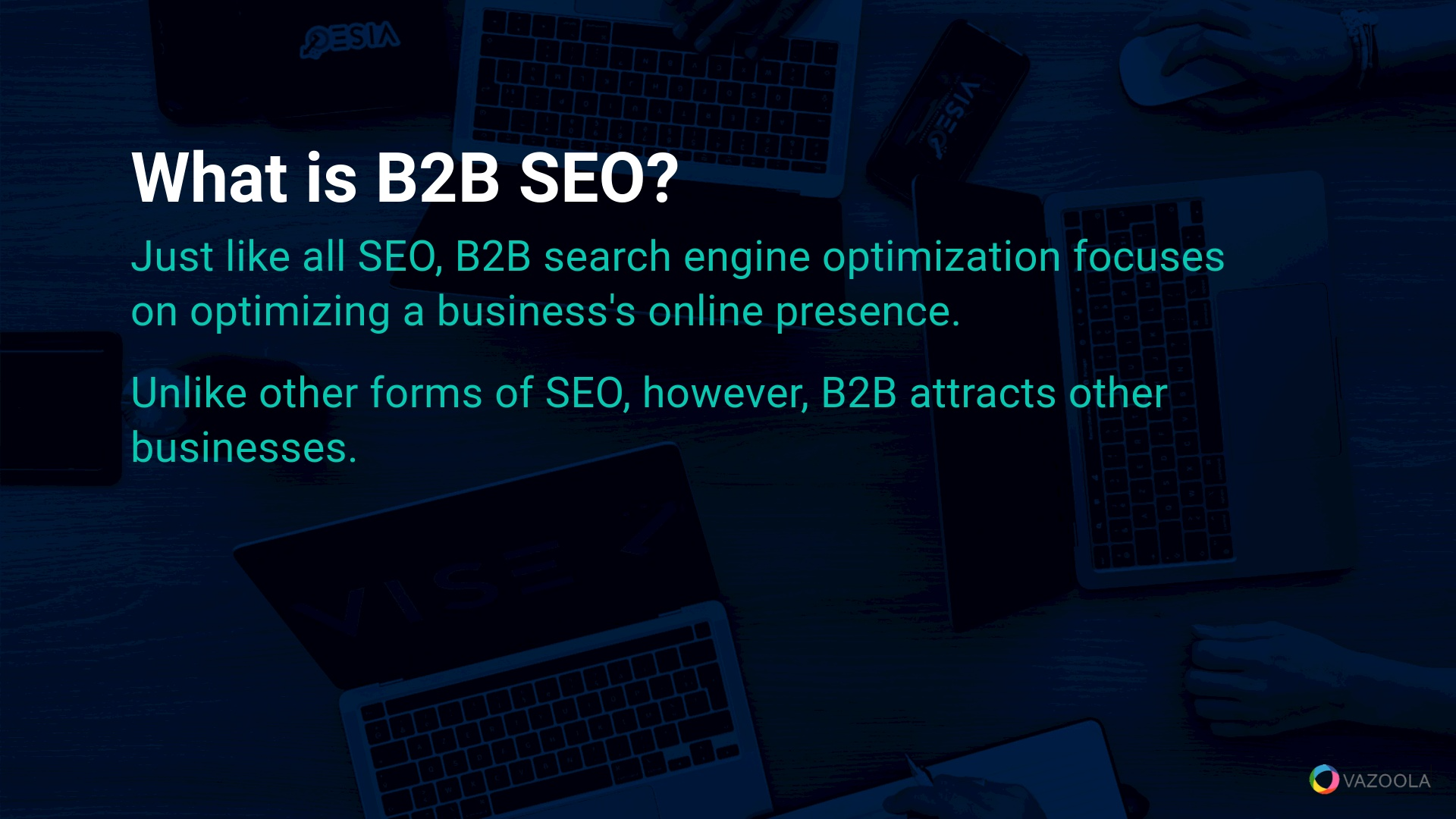
What’s B2B SEO anyway? How is it different from every other SEO strategy? Do those differences even matter?
You have the questions, we have the answers.
Just like all SEO, B2B search engine optimization focuses on optimizing a business's online presence. Unlike other forms of SEO, however, B2B attracts other businesses.
As its name suggests, business-to-consumer SEO targets individual consumers. B2B SEO, on the other hand, speaks to decision-makers within organizations.
B2B strategies are therefore designed to improve search engine rankings, drive quality traffic, and generate leads that convert to sales.
We’ve learned through experience that SEO’s significance in the B2B sector cannot be overstated.
After all, we’re living in an era when AI advancements and algorithm changes constantly reshape the digital landscape. You absolutely must maintain an effective SEO strategy if you want to stay ahead of the competition. You can’t afford not to.
It's not just about being found online, either. It's about being found by the right audience at the right time.
Pro Tips:
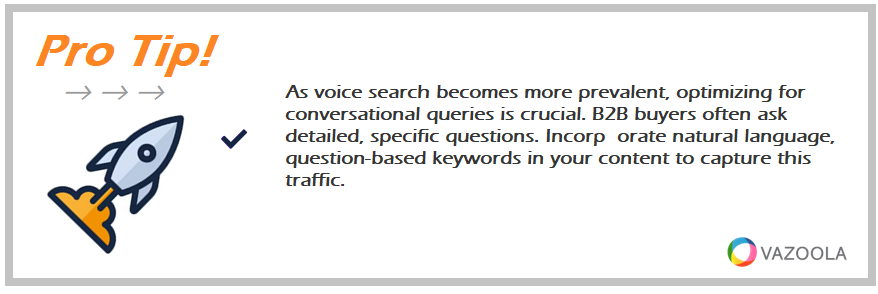
As voice search becomes more prevalent, optimizing for conversational queries is crucial. B2B buyers often ask detailed, specific questions. Incorporate natural language, question-based keywords in your content to capture this traffic.
B2B vs. B2C SEO: Key Differences
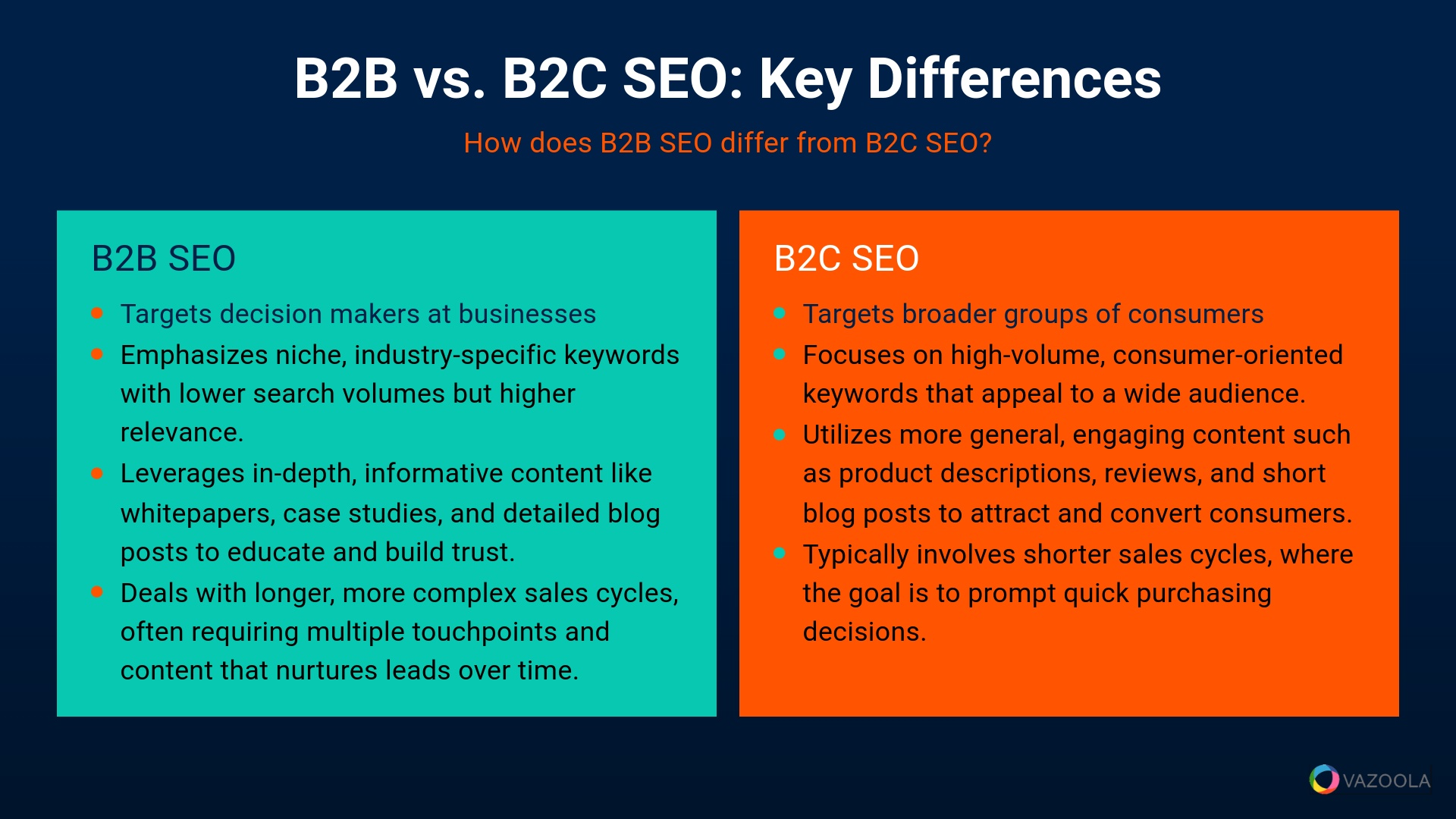
So, B2B and B2C SEO strategies target different audiences. That much is fairly obvious. But how else are they different?
B2B SEO typically targets niche markets, with a focus on decision-makers like owners, CEOs, and managers. The sales cycle in B2B is longer and more complex. Multiple stakeholders may be involved, and it requires a higher degree of trust and credibility.
B2C SEO, on the other hand, targets broader audiences with shorter sales cycles.
Keyword strategies also differ. B2B companies focus on lower search volume keywords that are highly relevant to their industry. B2C, on the other hand, aims for high-volume, consumer-oriented keywords.
Pro Tips:
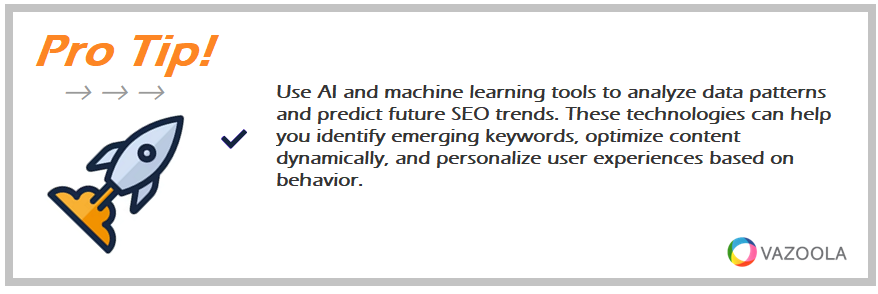
Use AI and machine learning tools to analyze data patterns and predict future SEO trends. These technologies can help you identify emerging keywords, optimize content dynamically, and personalize user experiences based on behavior. .
Building a B2B SEO Strategy
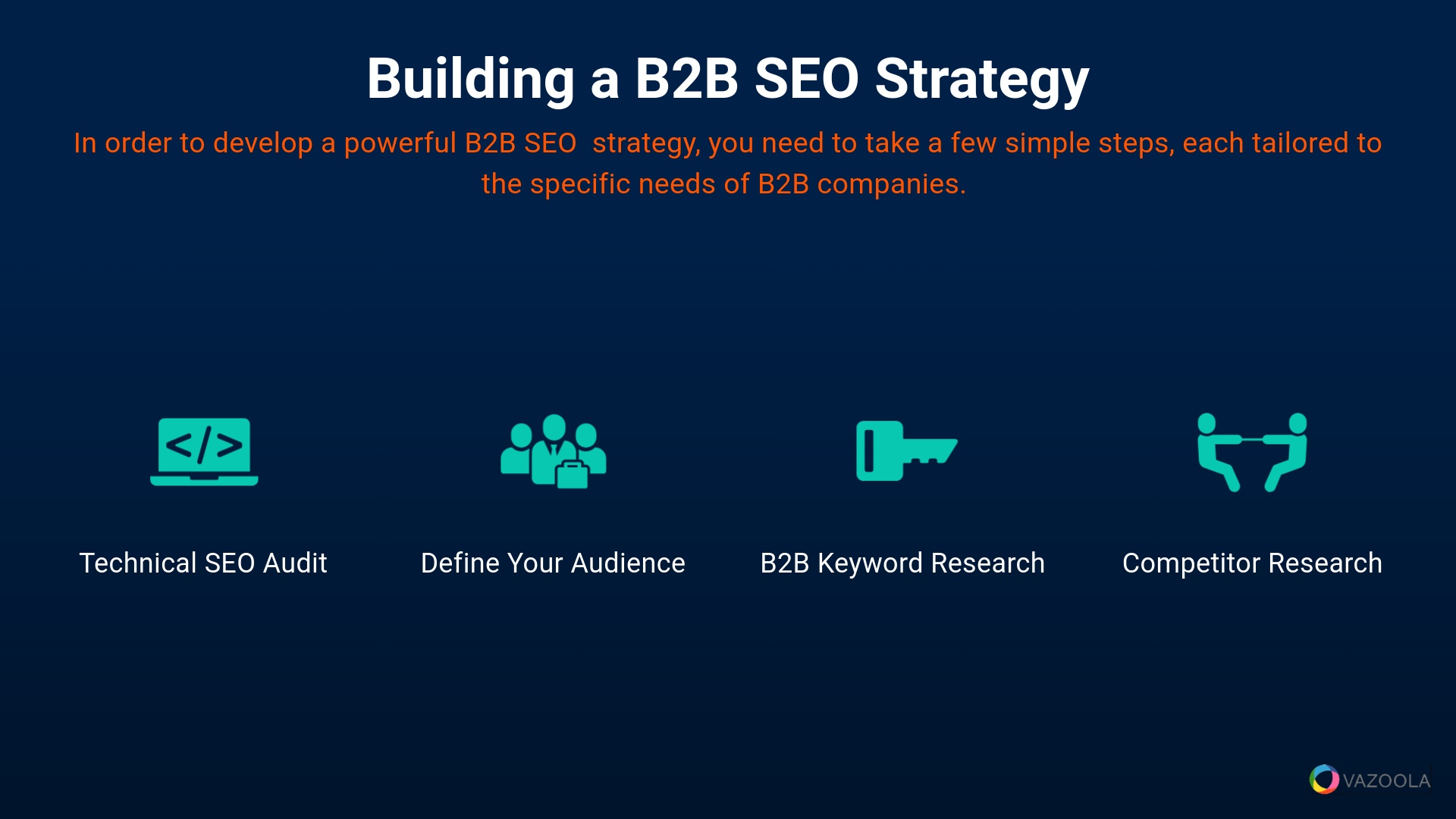
We can’t overstate the importance of SEO for B2B businesses.
Are you ready to develop a powerful B2B SEO strategy? You’ll need to take a few simple steps, each tailored to the specific needs of B2B companies.
Technical SEO Audit
There’s no two ways about it. A technical SEO audit is the foundation of any successful SEO strategy. To perform the audit, evaluate your website's infrastructure so it meets search engine requirements.
Issues like slow loading times, broken links, and poor mobile optimization harm your rankings.
The basics of a technical SEO audit are largely similar across industries. B2B websites, however, may face unique challenges. For example, they might handle complex site architectures, or they could employ integrated CRM systems.
Defining Your Audience
For successful B2B marketing, you have to understand your audience. You simply won’t meet your goals without it.
Unlike B2C, where you're often targeting a broad demographic, SEO marketing for B2B requires a deep understanding of the businesses and decision-makers you're trying to reach.
We recommend you first identify stakeholders so you can understand their pain points. Then you can tailor your message to meet their needs.
Your ultimate goal is creating content that speaks directly to decision-makers and positions your business as a trusted partner.
Pro Tips:
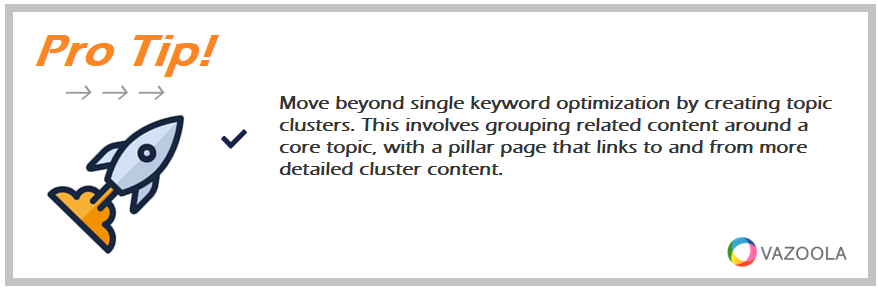
Move beyond single keyword optimization by creating topic clusters. This involves grouping related content around a core topic, with a pillar page that links to and from more detailed cluster content.
B2B Keyword Research
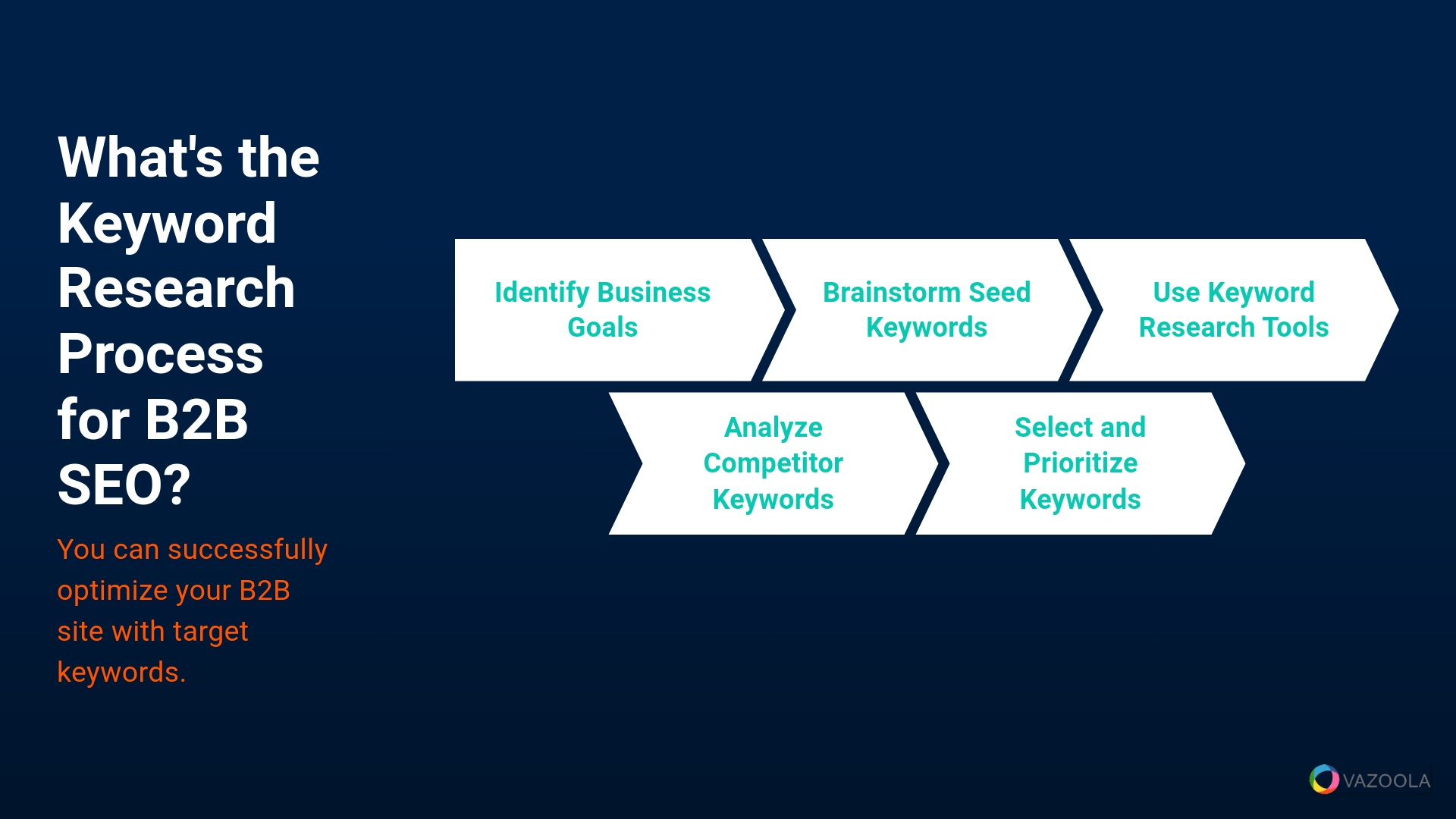
Your specific keyword strategies will differ if you’re focused on B2B SEO.
To perform keyword research in the context of B2B, you need to identify the terms and phrases your target audience uses to find solutions like yours.
Unlike B2C keyword research – which might focus on high-volume, broad terms – B2B keywords are often more niche and industry-specific.
We suggest employing tools like SEMrush and Ahrefs to identify these keywords – or you can check out our free keyword research tool.
You also need to understand the intent behind the searches. Are potential clients looking for information, solutions, or vendors? The answer to this question will guide your keyword strategy and content creation.
Competitor Research
What sort of SEO strategies for B2B business are your competitors employing? How can you apply their successes to your own B2B SEO tactics?
By analyzing your competitors' strategies, you gain valuable insights into what SEO tactics are working in your industry.
By examining competitors’ keywords, content, and backlink profiles, you discover opportunities to differentiate your approach.
Competitor research goes hand in hand with keyword research. They both help you understand where your competitors rank and how you can outperform them.
Pro Tips:
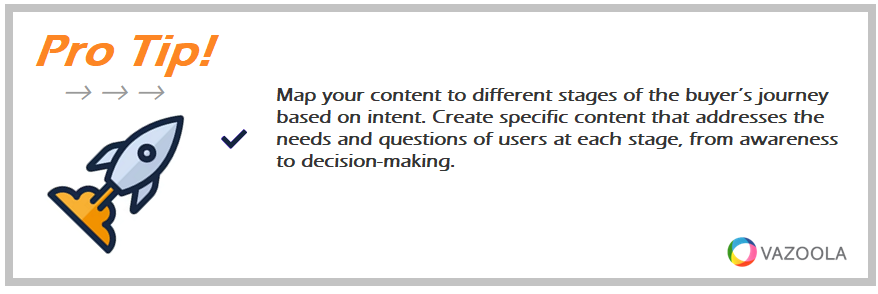
Map your content to different stages of the buyer’s journey based on intent. Create specific content that addresses the needs and questions of users at each stage, from awareness to decision-making.
Content Strategy for On-Page SEO
Creating high-quality, relevant content is at the heart of any SEO strategy, right? That much is a no-brainer.
B2B companies should produce content that addresses their target audience’s specific needs and challenges.
With on-page SEO, you optimize individual pages on your website so they rank higher and attract more relevant traffic. Perform tasks like optimizing title tags, meta descriptions, headings, and content. Make sure you focus on target keywords.
A well-executed on-page SEO strategy is sure to improve your search engine rankings and visibility.
Pro Tips:
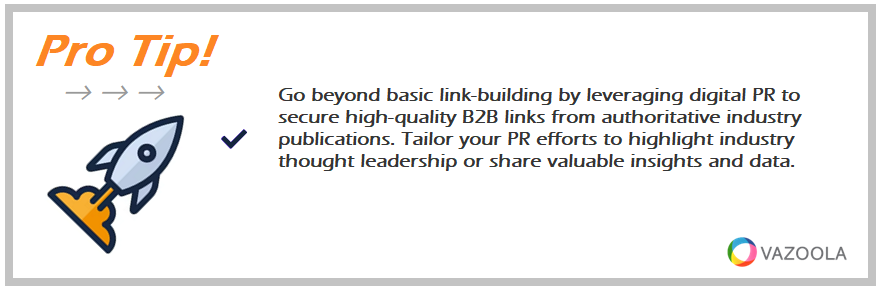
Go beyond basic link-building by leveraging digital PR to secure high-quality B2B links from authoritative industry publications. Tailor your PR efforts to highlight industry thought leadership or share valuable insights and data.
Off-Page SEO Strategy for B2B
So, now you know about B2B on-page SEO, but what about off-page SEO tactics? How do they differ from B2C?
Off-page SEO focuses on building your website's authority and credibility through external sources – like B2B backlinks from reputable sites.
In the B2B world, off-page SEO establishes trust and credibility. B2B link building strategy, content marketing, and social media engagement all play roles in this process.
Pro Tips:
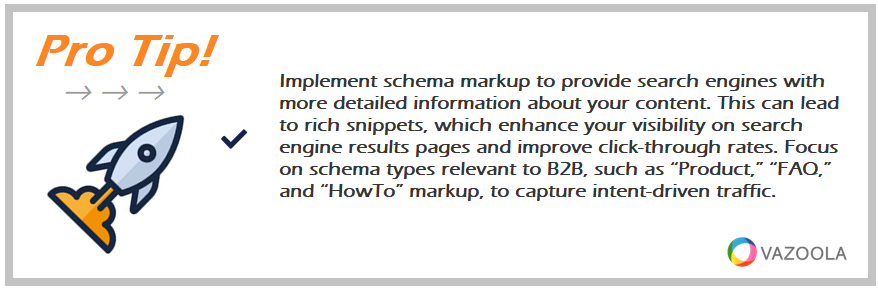
Implement schema markup to provide search engines with more detailed information about your content. This can lead to rich snippets, which enhance your visibility on search engine results pages and improve click-through rates. Focus on schema types relevant to B2B, such as “Product,” “FAQ,” and “HowTo” markup, to capture intent-driven traffic.
Measuring B2B SEO Success
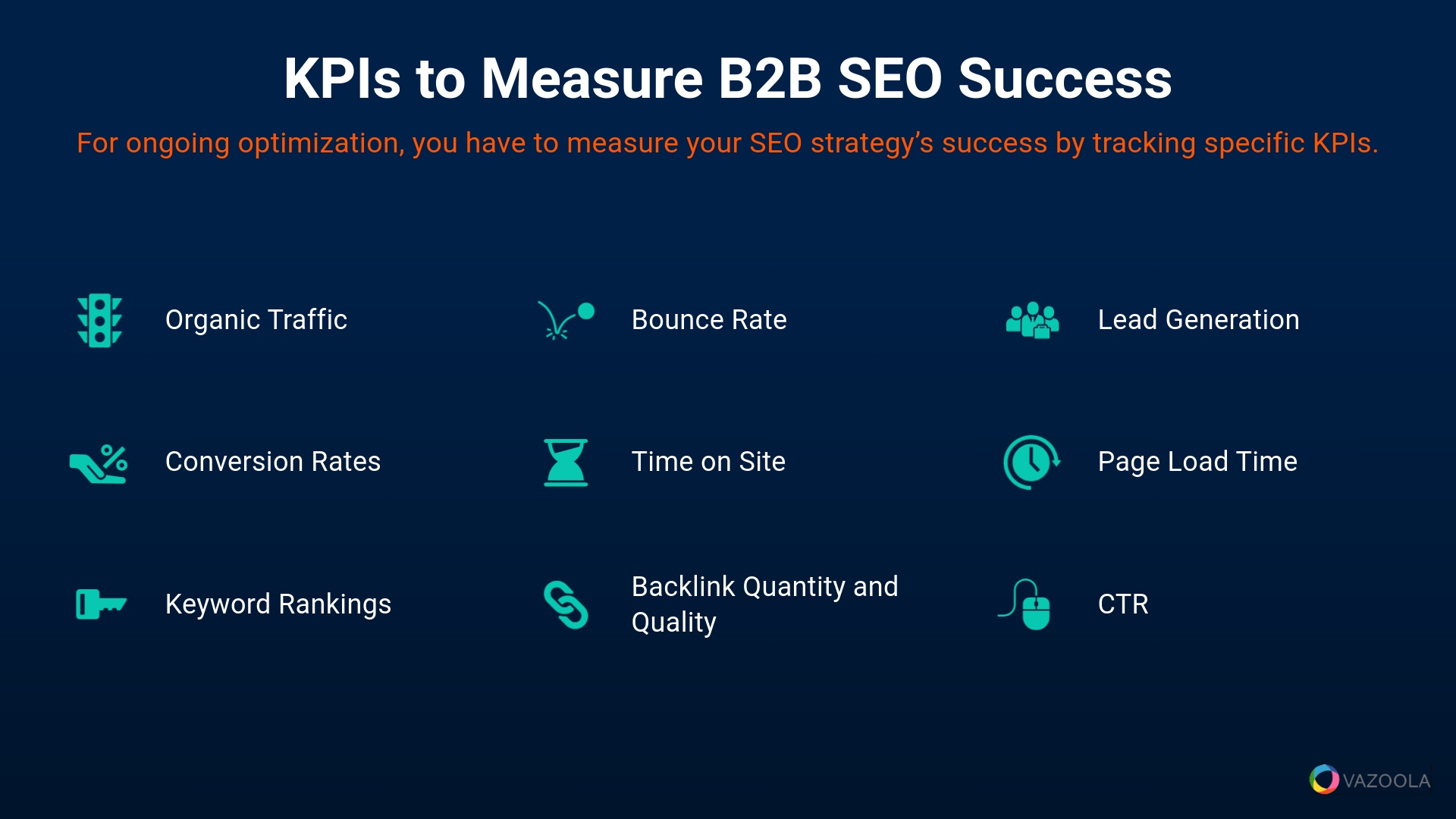
Now that you’ve implemented B2B SEO tips and strategies, how do you know if they worked?
For ongoing optimization, you have to start (and end) by measuring your SEO strategy’s success. Key performance indicators like organic traffic, conversion rates, and keyword rankings will help you assess the efficacy of your efforts.
Regularly review these metrics to refine your strategy and achieve better results over time
Since you now know why SEO is important for B2B businesses, you can take your strategy to the next level.
Consider partnering with Vazoola. Our team of experts can provide you with a comprehensive SEO strategy tailored to your business needs, including specific B2B SEO solutions.
Contact us today for a free demo and discover how we can help you drive measurable results and achieve your marketing goals.

